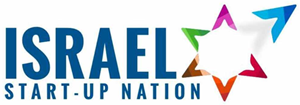72 Extraordinary Israeli Achievements
1) Declaration of Israel’s Independence (May 14, 1948)
First Prime Minister of Israel David Ben-Gurion announces the establishment of the State of Israel in Tel Aviv and declares that Jewish immigration into the new state would be unrestricted. Between 1948 and 1951, nearly 700,000 Jews immigrate to Israel, which included more than two-thirds of the Jewish Diaspora in Europe.
33
rd U.S. President Harry S. Truman recognizes the State of Israel within its first hour of existence.
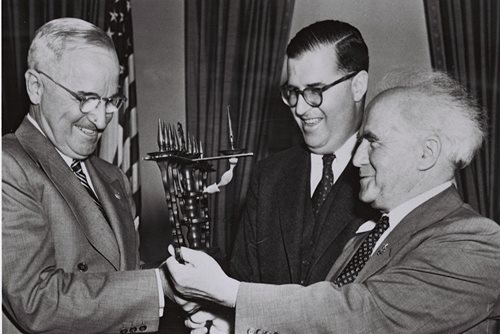
2) Founding of the Israel Defense Forces (IDF) (May 31, 1948)
Ranked among the most battle-tested and highly-trained armed forces in the world, the IDF's security objectives are to defend the existence, territorial integrity and sovereignty of the State of Israel, deter all of Israel's enemies, and curb all forms of terrorism which threaten daily life.
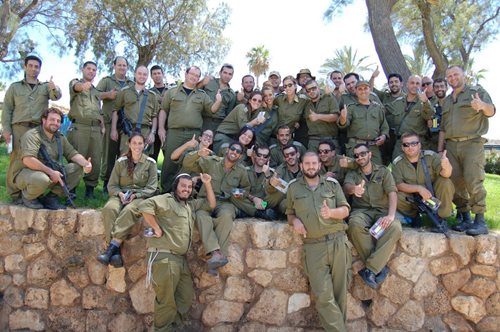
3) First Israeli coin minted (August 17, 1948)
Israel's first coin minted was 25 mil, made of aluminum, and featured a a cluster of grapes modeled after a coin from the Bar-Kokhba war against the Romans. This set a precedent followed to this day of using designs of ancient Jewish coins in new Israeli ones.
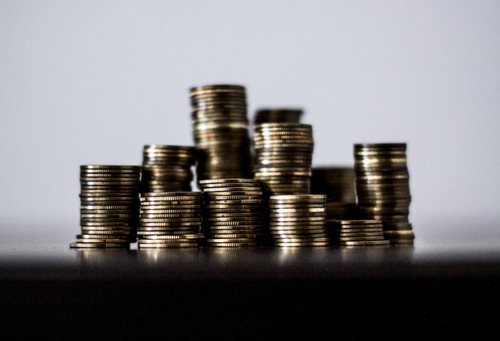
4) Elections for the Constituent Assembly held in newly independent Israel (January 25, 1949)
Voter turnout was 86.9%. Two days after its first meeting on February 14, 1949, legislators voted to change the name of the body to the Knesset (Hebrew: כנסת, translated as Assembly). It is known today as the First Knesset.
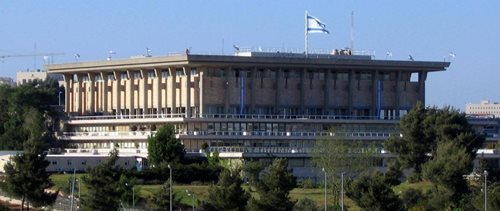
5) Israel admitted as 59th member to United Nations (May 11, 1949)
Since admission, Israel has participated in a wide range of UN operations and has endeavored to make its full contribution to UN organizations dealing with health, labor, food and agriculture, education and science. Israel plays an active role in the work of nongovernmental organizations, conducted under UN auspices, which deal with issues ranging from aviation to immigration, from communications to meteorology, from trade to the status of women.
6) The Law of Return is passed (July 5, 1950)
The Law gave Jews the right to emigrate to Israel and gain Israeli citizenship. In 1970, the right of entry and settlement was extended to people with one Jewish grandparent and a person who is married to a Jew, whether or not he or she is considered Jewish under Orthodox interpretations of Halacha.
7) Prime Minister David Ben-Gurion launches Israel bonds to a packed house in New York’s Madison Square Garden (May 10, 1951)
The event, followed by a coast to coast tour, raised $52.6 million in investments for the young state and helped stabilize Israel’s economy in its infancy. Today the Bonds enterprise ranks among Israel’s most valued economic and strategic resources with worldwide sales surpassing $41 billion.
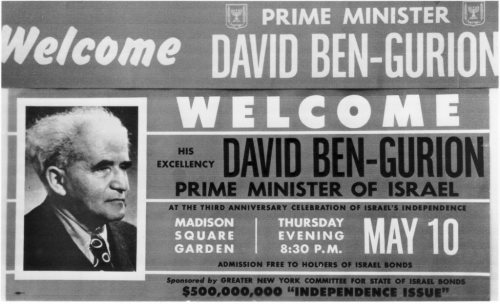
8) Tel Aviv University opens (1956)
The university’s origins go back to 1956, when three small education units - The Tel Aviv School of Law and Economics, an Institute of Natural Sciences, and an Institute of Jewish Studies - joined together to form the University of Tel Aviv. Now, the largest university in Israel and the biggest Jewish university in the world, UTA is a major center of teaching and research, comprising nine faculties, 106 departments and 90 research institutes.
9) Israel develops modern drip irrigation (1959)
Instead of releasing water through small holes easily blocked by tiny particles, Simcha Blass established the first experimental system in Israel to release water through larger and longer passageways by using velocity to slow water inside a plastic emitter. He later partnered with Kibbutz Hatzerim in 1964 to create an irrigation company called Netafim. Together they developed and patented the first practical surface drip irrigation emitter. The kibbutz-owned company now operates in 112 countries with 13 factories throughout the world.

10) University of Haifa is established (1963)
Established in 1963 under the joint auspices of the Hebrew University of Jerusalem and the Haifa Municipality, University of Haifa gained academic accreditation in 1972 as a separate institution from the Council for Higher Education. Now, the most pluralistic institution of higher education in Israel: sons and daughters of both veteran cities and development towns, kibbutzim and moshavim, new immigrants, Jews, Arabs, and Druzes, IDF officers and security personnel—all sitting together on the bench of knowledge in an atmosphere of coexistence, tolerance, and mutual respect.
11) The National Water Carrier begins operations, bringing water from Lake Kinneret in the north to the semi-arid south (June 1964)
The National Water Carrier, also called the ‘Jordan Plant’ is Mekorot’s flagship project and the largest infrastructure project built in Israel in the last fifty years. Upon its operation, about 80% of the water transferred in it was for agricultural uses and about 20% for drinking water. At the beginning of the 1990s, the National Carrier already supplied half of Israel’s drinking water, from the north to the edges of the Negev.
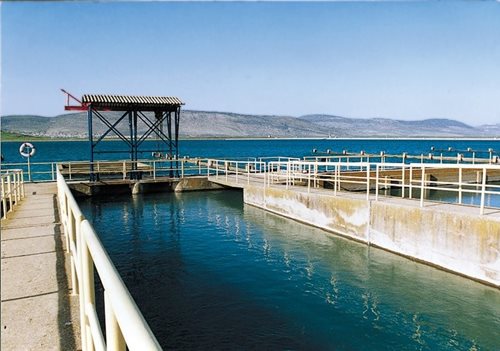
12) Israel wins the Asia Soccer Cup, defeating South Korea 2-1 in the final (June 3, 1964)
The 1964 AFC Asian Cup was the 3rd edition of the men's AFC Asian Cup, a quadrennial international football tournament organized by the Asian Football Confederation (AFC). The tournament used a round-robin system with the winners from the West, Central 1 and 2 and East Asia zones and the team from the host nation, Israel, competing for the title.
11 of the 16 nations withdrew with the result that only one zone (combined Central 1 and 2) played any qualifying matches, and the winners of 2 zones and host Israel qualified uncontested. In this diminished competition Israel won the title with three wins.
13) Sallah Shabbati becomes Israel’s first Oscar nominated film (February 23, 1965)
Nominated in the Best Foreign Language category for the 37
th Academy Awards,
Sallah Shabbati, written and directed by Ephraim Kishon, stars Chaim Topol and highlights with humor the struggle encountered by Jews emigrating from Arab lands to Israel. At the Golden Globes, the film received a special secondary prize as an Outstanding Foreign Film and Topol was recognized as a “star of tomorrow.”
14) The Israel Museum in Jerusalem founded as the country's national museum (1965)
The 20-acre Israel Museum sprawls across central Jerusalem's Valley of the Cross, within sight of both the Knesset and Rechavia, and is the country's flagship museum and largest cultural institution. Now home to one of the finest and most comprehensive collections of art and Holy Land antiquities in the world, the museum's collections include nearly 500,000 objects, dating from prehistory to today.
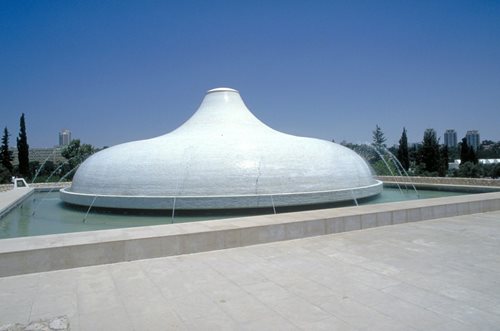
15) The Reunification of Jerusalem (1967)
The Reunification of Jerusalem refers to the June 1967 administrative merger of West Jerusalem and East Jerusalem by Israel, following the conquest of the Eastern half of the city (including the walled Old City) from Jordan during the Six Day War. In 1980, the merger of West and East Jerusalem was legalized in Israel by the Jerusalem Law, though this move was rejected by the UN and most of the international community. The Reunification is celebrated as an Israeli national holiday, Yom Yerushalayim, or Jerusalem Day.
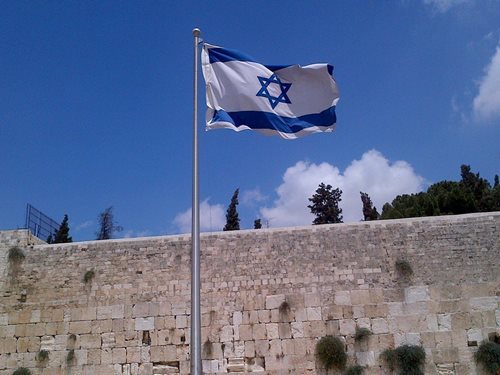
16) Golda Meir elected Israel’s first and the world’s third female prime minister (March 17, 1969)
Meir was one of 24 signatories of the Israeli Declaration of Independence on May 14, 1948. She served as Israel’s ambassador to the Soviet Union, Minister of Labor and Foreign Minister before becoming the prime minister on March 17, 1969.
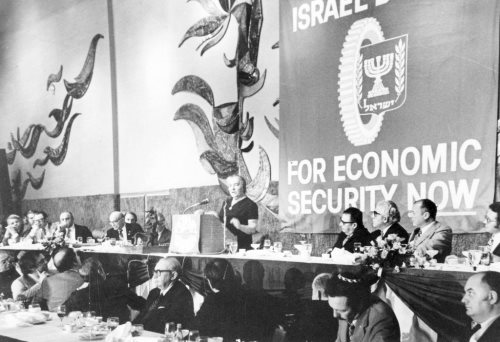
17) Israeli food scientists develop a new, shelf-stable cherry tomato (1970s)
Tomaccio tomatoes, sweeter than standard ones found in supermarkets, resulted from a 12-year breeding program developed by Hishtil in Israel using a wild Peruvian tomato species. Tomaccio is a vigorous, high yielding, early fruiting cherry tomato bred primarily for the sun-dried tomato market. They have an intense, sugary flavor when picked fresh or dried at home. Tomaccio plants can reach heights of nine feet and yield 13-18 pounds of fruit per season.
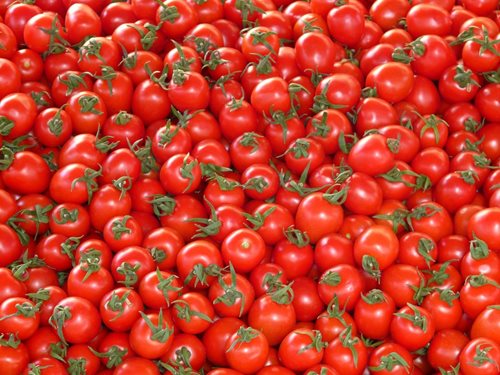
18) Israel and the European Economic Community sign an agreement giving Israel Associate Membership (May 11, 1975)
Israel was the first Mediterranean country to sign a major agreement with the EEC and in so doing paved the way for the opening of the vast Western European market to Israeli industrial goods and agricultural produce. By July 1977 all duties on Israeli industrial goods would be abolished. By 1989, European goods would enter Israel duty free.
19) Israeli Rina Messinger wins the Miss Universe competition (July 11, 1976)
Miss Universe 1976, the 25
th Miss Universe pageant, was held on 11 July 1976 at the Lee Theatre in Hong Kong. Rina Messinger of Israel was crowned by Anne Marie Pohtamo of Finland. This is the first and (as of 2017) only time that Israel has won the competition.
20) Maccabi Tel Aviv basketball team wins European championship for the first time (February 17, 1977)
"We are on the map!" proclaimed a euphoric Tal Brody as a TV announcer pushed a microphone in front of him for a post-game quote, while people danced the hora around him in excitement and celebration. "And we are staying on the map – not only in sports, but in everything."
The phrase "We are on the map!" ("anachnu al hamapa, ve'anahnu nisharim al hamapa!"), a literal translation of an English phrase into his adopted language, but a novel saying in Hebrew, became a new, popular phrase in Israel. It reflected a physical victory by the nascent Jewish Zionist idea and national pride. It became Israel's most famous quote, and a staple of Israeli speech.
21) The Diaspora Museum opens in Tel Aviv (May 15, 1978)
The Museum of the Diaspora (Beit Hatfutsot) opens on the campus of Tel Aviv University. The overseas guest list is headed by Jacqueline Kennedy.
Exhibits during its debut year included "Beyond the Golden Door", on the history of the Jewish Community in New York, and "The Last Jews of Radauti", a photographic record of a dying Jewish community in Romania.
22) Prime Minister Begin awarded the Nobel Peace Prize (December 10, 1978)
Joining icons including civil rights campaigner Martin Luther King, Jr. and human rights activist René Cassin, Prime Minister Menachem Begin became the first Israeli winner of the annual peace prize.
The Nobel committee awarded Begin along with President Anwar Sadat of Egypt the prize, “for the Camp David Agreement, which brought about a negotiated peace.”
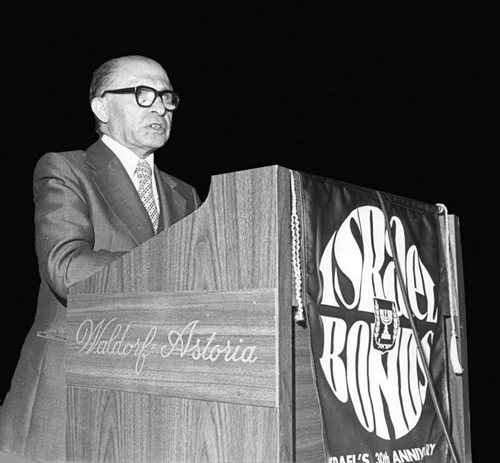
23) The first Israeli vessel flying the Israeli flag sails through the Suez Canal (April 30, 1979)
The freighter, Ashdod, made history by becoming the first Israel-flag vessel ever to navigate the Suez Canal, thus formally ending Egypt’s ban on Israeli shipping that began when the Jewish State was founded.
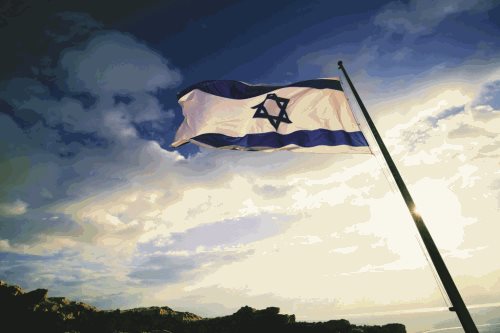
24) The Intel 8088, foundation of the original IBM PC, is designed in Israel (July 1, 1979)
The Intel 8088 ("
eighty-eighty-eight", also called iAPX 88) microprocessor, designed at Intel's Haifa laboratory in Israel, was the 16-bit CPU that IBM chose for its original line of PCs, which went on to dominate the desktop computer market.
25) Maccabi Elite Tel-Aviv basketball team wins 1980-81 FIBA European Champions' Cup (March 26, 1981)
The 1980–81 FIBA European Champions Cup was the 24
th season of the European top-tier level professional basketball club competition FIBA European Champions Cup (now called EuroLeague). In a tightly contested game, Maccabi Elite Tel Aviv defeated Sinudyne Bologna, 80–79 at the Hall Rhénus, in Strasbourg, France.
26) BioBee Biological Systems is founded in Kibbutz Sde Eliyahu (1984)
BioBee Biological Systems Ltd is now a leader in biological-based integrated pest management (IPM), offering farmer-friendly predatory insects and mites as an alternative to chemical pesticides. It also provides bumblebees for natural pollination, and sterile male Mediterranean fruit flies for medfly control. The company’s products are sold worldwide in more than 50 countries.
27) Israel launches Ofek 1satellite into space (September 19, 1988)
Ofeq, also spelled Offek or Ofek (Hebrew: אופק, lit. Horizon) is the designation of a series of Israeli reconnaissance satellites first launched in 1988. Most Ofeq satellites have been carried on top of Shavit rockets from Palmachim Airbase in Israel, on the Mediterranean coast. The Low Earth orbit satellites complete one earth orbit every 90 minutes.
The satellite launch made Israel only the eighth nation to gain an indigenous launch capability, both the satellites and the launchers were designed and manufactured by Israel Aerospace Industries (IAI) with Elbit Systems' El-Op division, and just the ninth country with satellite-launching capabilities.
28) China agrees to the opening of an Israeli Scientific Exchange office in Beijing (October 11, 1988)
The agreement helped in establishing the Jewish state's first presence in the Chinese capital.
29) The Soviet government permits the opening of a Jewish school in Riga, the first in fifty years (September 1, 1989)
A Jewish secondary school named after Shimon Dubnov was set up in Riga, becoming the first Jewish state school in the former Soviet Union.
In 2011-2012, the school was ranked as the 8th best secondary school in Latvia, according to the Latvian Ministry of Education. In addition to providing education in line with the state curriculum, the school offers advanced study in two tracks: Jewish education and technology education.
30) Israeli-based company Vocaltec documents the first use of Voice over Internet Protocol (1990s)
Vocaltec developed an internet phone that allows computer users to communicate using an internet connection, microphone, and speakers. Some years later other businesses began to recognize the potential of VoIP, and began branding their own equipment and software to enable two people to speak via their computers; VoIP as we know it today was born.
31) Israel launches the Ofek 2 satellite into space (April 23, 1990)
Ofek 2 launched on a course with a perigee of 149 km and an apogee of 251 km, bent around 143.2 degrees accomplished communication tests.
32) Breakthrough device to help detect infant respiratory cessation is developed and patented in Israel (1991)
Babysense developed a non-touch, no-radiation device designed to prevent crib death by monitoring a baby’s breathing and movements through the mattress during sleep. An auditory and visual alarm is activated if breathing ceases for more than 20 seconds or if breath rate slows to less than 10 breaths per minute.
33) Israel wins first Olympic medals, silver and bronze in Judo (July 30 and 31, 1992)
Israel won its first ever Olympic medals in judo at the 1992 Summer Olympics in Barcelona, Spain. The first medalist in Israel's history was Yael Arad, who won silver in judo's under-61kg category for women. She was followed a day later by another judoka, Oren Smadja, who won bronze in men's under-71kg category.
34) The Nobel Peace Prize is awarded to Israeli Prime Minister Yitzhak Rabin, Foreign Minister Shimon Peres and PLO Chairman Yasser Arafat (October 14, 1994)
The three dignitaries received the award for the vision and courage of their efforts to resolve the Palestinian-Israeli conflict after generations of war and bloodshed. "This prize is for the whole nation, for the citizens of the state of Israel, for the bereaved families and the disabled, for the hundreds of thousands who have fought in Israel's wars," Rabin said in a statement.
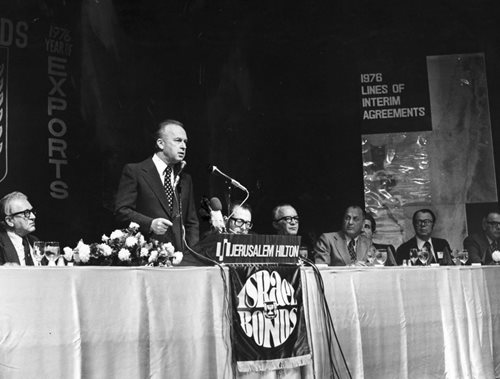
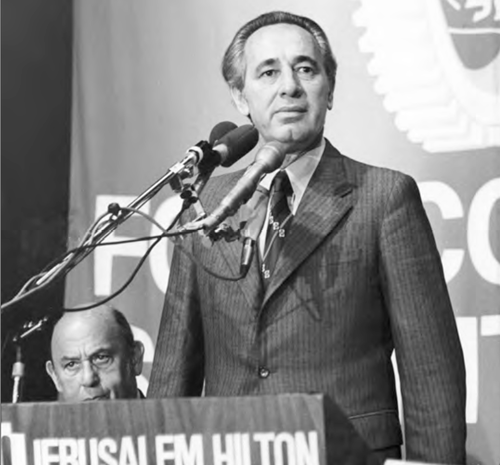
35) Israel launches its first spy satellite into orbit (April 5, 1995)
Ofek 3 became Israel’s first operational imaging satellite to enter into orbit. It was from that point that Israel officially began its permanent presence in space, with military and civilian surveillance and communications capabilities that put it at the forefront of space technology.
.jpeg.aspx?width=500&height=250)
36) ICQ, Instant Messaging software, is developed by Israeli company Mirabilis and later procured by AOL (1996)
ICQ was the first stand-alone instant messenger and the first online instant messenger service — while real-time chat was not in itself new to the internet (IRC being the most common platform at the time), the concept of a fully centralized service with individual user accounts focused on one-on-one conversations set the blueprint for later instant messaging services like AIM, and its influence is seen in modern social media applications. Ownership of ICQ passed from Mirabilis to AOL in 1998, and from AOL to Mail.Ru Group in 2010.
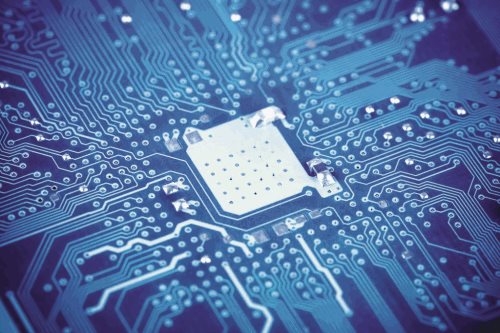
37) Israeli entrepreneur Amnon Ovadia launches computer dictionary and translation program Babylon (1997)
The concept of Babylon began in 1995 with Amnon Ovadia who had the idea of creating an English-Hebrew dictionary that did not interrupt the reading process. The year after its launch date, the company had 2 million users, mostly in Germany and Brazil, growing from 420,000 to 2.5 million users over that year. By 2000, the company had over 4 million users and the program was ranked among the most popular downloads by ZDnet France, AOL Germany, and Tucows.
38) Pillcam premieres as a prototype at the 11th World Congress on Gastroenterology in Vienna (1998)
Israeli inventor Gavriel Iddan's development of a pill-sized camera for wireless capsule endoscopy opened up a world of new possibilities in the field of gastrointestinal diagnostics. The PillCam video capsule offers an alternative to more invasive or less patient-friendly procedures for the detection of gastrointestinal diseases.

39) USB flash drives are invented at Israeli-based M-Systems by Amir Ban, Dov Moran and Oron Ogdan (1999)
The first commercial USB flash drive, the DiskOnKey, was sold by IBM in North America on December 15, 2000 and had a storage capacity of 8 MB – more than five times the capacity of the then-common floppy disks.
40) ReWalk is founded by Israeli inventor Dr. Amit Goffer, who was inspired to launch the company after an injury left him a quadriplegic (2001)
ReWalk, a commercial bionic walking assistance system that uses powered leg attachments to enable paraplegics to stand upright, walk and climb stairs, is powered by a backpack battery and controlled by a simple wrist-mounted remote which detects and enhances the user's movements.
In 2012, paralyzed British woman Claire Lomas became the first person to finish a marathon using the bionic assistance suit. She also became the first person to take the suit home for assistance with everyday tasks, and participated in the opening ceremony of the 2012 Summer Paralympics in her ReWalk.
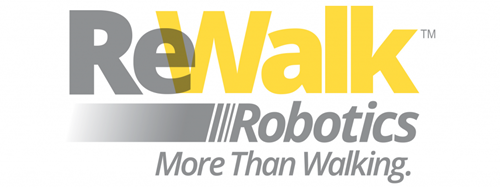
41) Ben-Gurion University of the Negev scientist is awarded the Tyler Prize for Environmental Achievement (2003)
Yoel Margalith, professor at Ben-Gurion University of the Negev and director of its Center for Biological Control, is acknowledged for his development of a biological control for mosquitoes and black flies that cause malaria and river blindness, saving the sight and lives of millions of people in Africa and China.
The natural microbial agent has little negative impact on the environment, is cheaper than its chemical alternatives and kills only the larvae of those two insects – leaving all other organisms unharmed.
42) Israeli researchers resurrect ancient palm from 2000-year-old seed excavated from the Judean desert (2005)
In 2005, the preserved 2000-year-old seed sprouted. It is the oldest verified human-assisted germination of a seed. The palm, named Methuselah, was about 4ft 11in tall in 2008. As of 2011, it was reported at 8ft 2in high, having been transplanted from pot to earth. By 2015, the palm was 9.8ft tall and was producing pollen.
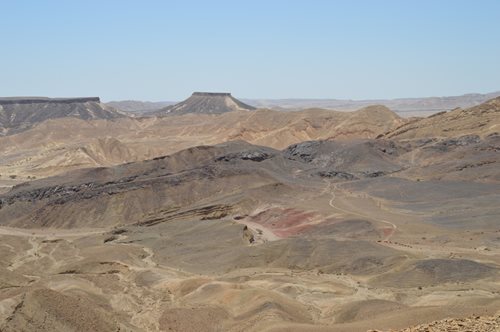
43) Wix is founded by Israelis Avishai Abrahami, Nadav Abrahami and Giora Kaplan and headquartered in Tel Aviv (2006)
The company entered an open beta phase in 2007 using a platform based on Adobe Flash. Just four years later, Wix had 8.5 million users and raised $40 million in funding, bringing its total funding to $61 million.
In April 2014, Wix announced its acquisition of Appixia, an Israeli startup for creating native mobile commerce (mCommerce) apps. Today, Wix provides a website building platform to over 110 million users in 190 countries.
44) Oded Balilty becomes the first Israeli photographer to win the Pulitzer Prize (2007)
The Israeli documentary photographer won the Pulitzer Prize for Breaking News Photography in 2007 for his image of a lone Jewish woman defying security forces during the evacuation of the Amona outpost in Samaria on February 1, 2006.
45) The full length of Highway 471 opens to the public (October 16, 2007)
Commonly called Maccabit Road, the suburban expressway in the center of the Tel Aviv Metropolitan Area in Israel, connects Highway 4 in the west with Route 444 in the east. It is part of a road system planned to provide improved access to Highway 6.
Highway 6 is known as the Trans-Israel Highway or Cross-Israel Highway, and is the first Israeli Build-Operate-Transfer road constructed. It is also one of the largest infrastructure projects undertaken in Israel.
46) Waze Ltd., is founded in Israel by Uri Levine, software engineer Ehud Shabtai and Amir Shinar (2008)
Waze, a GPS-based geographical navigation application program for smartphones with GPS support and display screens, provides turn-by-turn information and user-submitted travel times and route details, while downloading location-dependent information over the mobile telephone network. Waze is available in over 100 countries and was acquired by Google for $1.1 billion in 2013.
47) Solaris Synergy creates solar energy panel arrays that float on water (2008)
In addition to being an efficient use of space, floating solar panels have minimize the use of steel, which is the main cost in the production of land-based panels; the water's cooling effect can increase electricity production over typical ground-mounted systems; and a solar system floating on water also reduces water evaporation 70%, while inhibiting destructive algae growth by blocking sunlight on the water.
Solaris installed its first live floating concentrated photovoltaic (F-CPV) system connected to the Israel Electric Corporation (IEC) grid. The system is based at the Arava Institute for Environmental Studies' Center for Renewable Energy and Energy Conservation located on Kibbutz Ketura, 30 kilometers north of Eilat.
48) Ada E. Yonath becomes the first Israeli woman to be awarded a Nobel Prize (2009)
Yonath received the Nobel Prize in Chemistry along with Venkatraman Ramakrishnan and Thomas A. Steitz for her studies on the structure and function of the ribosome, becoming the first Israeli woman to win the Nobel Prize out of ten Israeli Nobel laureates, the first woman from the Middle East to win a Nobel prize in the sciences, and the first woman in 45 years to win the Nobel Prize for Chemistry.
49) Israeli company Tal-Ya Agriculture Solutions develops reusable plastic tray to collect dew from the air, reducing the need to water crops by up to 50 percent (2009)
Based in the village of Gan Yoshiya, Tal-Ya Water Technologies offers ecological benefits that go beyond simple water savings. The trays are easy to use and bring tremendous added value to farmers, dramatically increasing crop yield, and enabling farmers to harvest more from each tree, faster.
50) OrCam is jointly founded by Professor Amnon Shashua and Ziv Aviram, who are also the co-founders of Mobileye, the collision avoidance system leader and autonomous driving innovator (2010)
The Israeli-based company became a leader in the wearable artificial intelligence space by developing and manufacturing assistive technology devices for individuals who are visually-impaired, partially-sighted, or blind. Headquartered in Jerusalem, OrCam Technologies developed the OrCam MyEye 2.0, OrCam MyEye1 and OrCam MyReader devices, used to read text and recognize people.
51) Israeli mobile application, Viber, launches for iPhone (December 2, 2010)
Developed by entrepreneurs Talmon Marco and Igor Magazinnik, former chief information officers for the Israel Defense Forces, Viber technology allows users to make phone calls and send text messages for free.
By 2014, Viber served 300 million registered users and on February 13, 2014 was acquired by Rakuten, Inc for $900 million.
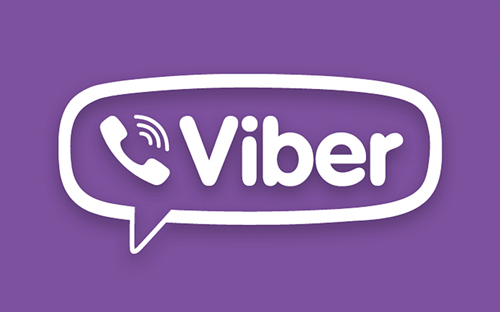
52) Israeli-designed GrainPro cocoons provide a simple and economical way for African and Asian farmers to keep their grain market-fresh (2011)
Invented by food technology Professor Shlomo Navarro and developed through the US-Israel Science and Technology Foundation in the 1980s, the cocoon was first marketed by a kibbutz specializing in plastics. It kept water and air out, saved crops from mold and pests, and solved the issue of freshness of the food products even in extreme heat and humidity.
53) Israeli chess Grandmaster Boris Gelfand places second in 2012 World Chess Championship (May 30, 2012)
A six-time World Championship Candidate (1991, 1994-95, 2002, 2007, 2011, 2013), Gelfand won the Chess World Cup 2009 and the 2011 Candidates Tournament, making him Challenger for the World Chess Championship 2012. Although placing second in 2012, he competed in 11 Chess Olympiads and held a place within the top 30 players ranked by FIDE from January 1990 to October 2017.
54) Israeli plant biotechnology company Morflora's TraitUP wins Agrow Award for the Best Novel Agricultural Biotechnology (November 18, 2013)
TraitUP, a generic non-transgenic and non-heritable platform that enables the delivery of DNA into a wide variety of seeds in a fast and reliable manner to protect them for a single generation from a wide range of diseases, and introduce new desired traits for plant and crop enhancement, was developed by Hebrew University agricultural scientists Ilan Sela and Haim D. Rabinowitch.
The award recognizes the most significant practical application of a novel biotechnology to the advancement of crop protection and agriculture.
55) Israeli actress Gal Gadot announced as Wonder Woman (December 4, 2013)
The Gal Gadot-fronted superhero movie went on to record-breaking success in its opening weekend raking in $223 million globally, including a historic $100.5 million at the US box office.
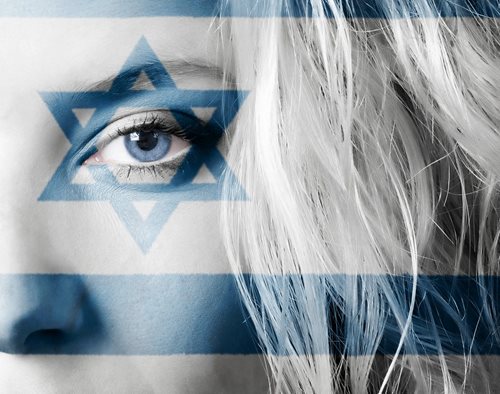
56) Israel is ranked fifth in the world on 2015 Bloomberg Business' Global Innovation Index (February 2015)
Israel ranks number five overall on the 2015 Bloomberg Innovation Index, an annual ranking of countries that measures performance in research and development, tech education, patents, and other marks of technology prowess. Fifth place marked a dramatic rise from 30
th in 2014, putting Israel ahead of France, Singapore, the UK, and the US.
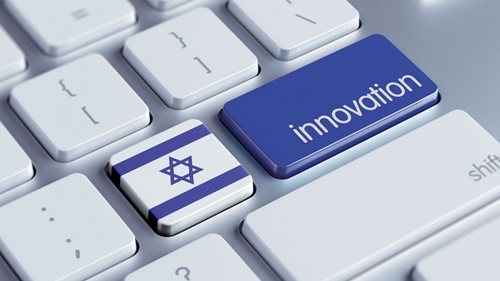
57) Ben-Gurion University and the University of Arizona sign a collaborative research agreement (March 2015)
The agreement allowed cooperation to take place on mutual areas of interest and strength, including cyber security, homeland security, nanotechnology, robotics, community medicine, remote sensing, and sustainability. The collaboration incorporates joint research as well as student exchanges.
58) Israeli high-tech companies close 104 deals worth $10 billion (2016)
The figure, up 12% from 2015, accounts for 93 mergers and acquisitions worth nearly $8.8 billion, including the $4.4 billion Playtika acquisition, eight buyouts that generated $1.22 billion and three small IPOs totaling $15.1 million according to the IVC - Meitar High-Tech Exits Report.
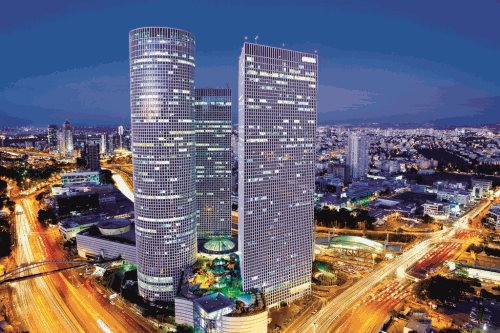
59) DowDuPont, conglomerate of two major U.S. corporations form and expand operations in Israel (2017)
"Israel is one of the economies with the swiftest growth in the world and many of Israel's companies are leaders in technologies and services that will help companies and communities to prosper worldwide," said Dow Chemical Co. EVP and president of Dow Europe, Middle East, Africa & India, Heinz Haller at a ceremony in Tel Aviv in October 2017.
60) Intel completes the first stage of the $15.3 billion purchase of Mobileye, an Israeli technology company that specializes in producing sensors and cameras for autonomous cars (August 2017)
The acquisition is expected to accelerate innovation for the automotive industry and positions the global microchip giant as a leading technology provider in the fast-growing market for highly and fully autonomous vehicles.
61) Israeli exports expected to pass $100 billion for the first time (2017)
A preliminary report on Israeli export activity for 2017 shows a 5% rise in total exports of goods and services, with a 3% boost in industrial exports, a 2% jump in agricultural exports, a 7% increase in export of high-tech services and a 20% improvement in Israeli exports to the European Union.

62) A record-breaking year for tourism to Israel notes over 3.6 million tourists (2017)
The number of tourists visiting Israel increased by 700,000, setting a new record and boost to the economy of $6 billion USD.

63) Israel’s Technion ranked #1 worldwide in digital education (2017)
A leader in providing students with digital skills, the Technion-Israel Institute of Technology in Haifa ranks in the Times Higher Education 2017 survey as the world’s top academic institution in terms of preparing students for leading positions in the digital revolution.
64) Two major US surveys rank Israel among most powerful, innovative countries (2018)
US News and World Report named Israel as the 8th most powerful nation in the world, surveying more than 21,000 people from four regions around the globe.
Meanwhile Bloomberg News, hailing Israel’s high-tech industry and technological advances, listed the Jewish state as the 10
th most innovative, above the US and UK, using an index that annually ranks economies by analyzing seven contributing factors such as research and development, spending and the concentration of public hi-tech companies.
.jpeg.aspx?width=500&height=341)
65) Israel ranks ahead of United States, Britain, France and Italy in the annual World Happiness Report (2018)
The survey of global societal well-being ranks 156 countries by happiness levels using variables such as GDP per capita and healthy life expectancy.
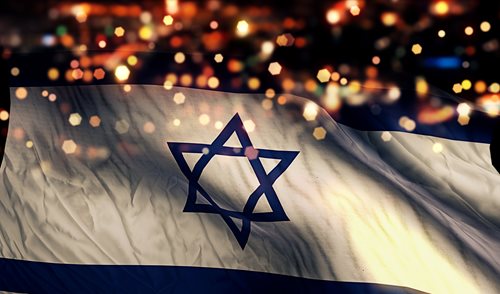
66) IDF increases effectiveness of its troops on the battlefield with a unit in Military Intelligence that has revolutionized how soldiers receive and understand critical information (2018)
Unit 3060’s mission is to use modern data science for operational and visual intelligence for commanders and intelligence officers to increase combat effectiveness of the IDF. The army unit comprised of over 400 soldiers has developed several applications that can function on tablets and other portable devices, allowing troops to fully understand the geographical imprint and topography of an area where they will be operating.
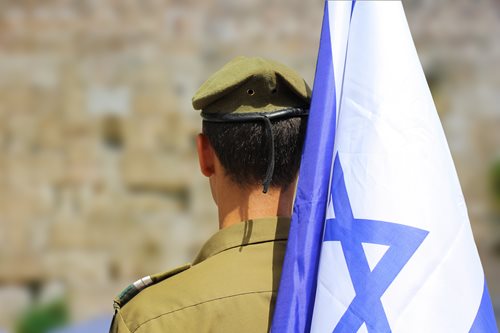
67) Israel’s Wizcomtech designs pen to make reading easier for kids with dyslexia (2018)
Modiin-based Wizcomtech, one of the largest producers of pen-shaped handheld scanning translators, secured a $5 million deal with a US distributor to sell a new pen that helps children with dyslexia.
68) Israel’s largest-ever Winter Olympics squad heads to Korea (2018)
Ten Israeli athletes represented (
eight skaters, an Alpine skier and a skeleton racer) represented Israel at the 2018 Pyeongchang Games, to become Israel’s largest-ever Winter Olympics delegation since its first participation in the Games in 1994.
69) One of the largest renewable energy projects in the world set to open in the summer of 2018
The sprawling Negev complex will produce 300 megawatts of clean electricity daily, contributing 2.5% toward the government’s goal of 10% renewable energy by 2020.
70) Israel to launch world’s first flight of nano-satellites by end of 2018
A group of three nano-satellites developed by scientists from Haifa’s Technion-Israel Institute of Technology will be the first autonomous spacecraft in the world to be flown in formation.
“Israeli technology is breaking boundaries and proving its innovation again and again,” commented Science and Technology Minister Ofir Akunis. “We are proud to be part of this flagship project, which is a significant contribution to the advancement of space in Israel and to the training of students in the field.”
71) Israel becomes the seventh nation to orbit the moon
Although Beresheet craft touchdown on April 11, 2019 was unsuccessful, the mission allowed the Jewish state to become the seventh country to orbit the moon which was an
undertaking the New York Times said “captured the imagination and excitement of people in Israel and around the world.”
.png.aspx)
Photo: SpaceX
72) ‘Israel Start-Up Nation’ becomes the first-ever Israeli team to compete in the Tour de France in 2020
The squad, which carries 30 riders from 16 nationalities, will participate in the world’s third most-watched sporting event after the quadrennial summer Olympic Games and the soccer World Cup, displaying Israeli innovation to billions of viewers.
